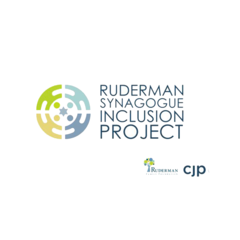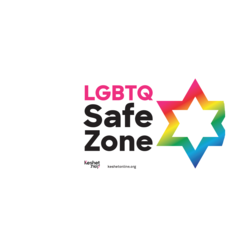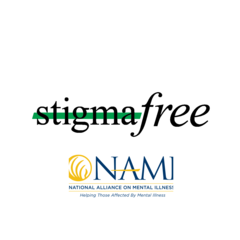Yom Kippur 2020
There’s really only one time in my 46 years of life so far when I’ve seriously considered not identifying as a Jew. That was when my great-grandparents were disinterred from their burial plots in a Jewish cemetery in Cincinnati, and the funeral director offered to pp the urns containing their cremated remains by UPS to my mother’s doorstep in Maryland. At the time, in 2007, I was a longtime Hebrew School teacher at a synagogue in Wayland, a graduate of Harvard Divinity School, a decade into making a Jewish home with my husband, mezuzah on the door, ketubah over the bed, and years into a career writing about Judaism and other religious topics. I knew enough to ask some rabbi friends whether we should convene a beit din, a religious court, to argue that the Jewish legal prohibition against disturbing the remains of the deceased outweighs the prohibition against burying those who chose to be cremated after their deaths. I also knew that my family would never put ourselves through such an ordeal as a beit din. And then, that new, heavy sensation that came with the reality that my family was being kicked out of a Jewish space. I felt, if the cemetery, which was overseen by a different rabbinic authority from those in charge when my great-grandparents died in the 1960s, felt that my ancestors’ presence rendered the cemetery’s ground unkosher, then maybe Judaism was a group that would no longer get to count me among their numbers.
There’s more to the story than that, of course. And there’s more to my Jewish journey. But when Rabbi Jaffe invited me to share my story today, one of the first things I thought of was that surreal, painful moment. Is that strange? I mean, I wouldn’t be here with you today if I hadn’t found my way back to Judaism, right? And it would be sad if the anger and hurt of that experience defined my Jewish identity in such a fundamental way.
And it doesn’t, and identity is never that simple anyway. But that incident is where I began thinking about my Jewish journey, and so it is where I begin sharing my story with you.
There are many stories I could have told to communicate my Jewish journey—stories about my Jewish education and two degrees in religion, anti-Semitic micro aggressions I’ve experienced, Jewish “skills” I’ve cultivated, from challah-baking to reading Torah trope, Jewish life cycle celebrations including my bat mitzvah, my wedding, my son’s bris, ways in which I’ve questioned and wrestled as I’ve grown as a human being and as a Jew.
Judaism has brought me great joy in my life. The wisdom of its teachings, the pleasures of its traditions, the spiritual, relational, and moral resources it offers are nearly boundless. But Yom Kippur is not a day of joy, it is a day of reflection.
I never met my maternal great-grandparents, Harry Ezeikel Bassler and Ethelle Faulkenstein Bassler. But they loom large in my life, and in my thinking this Yom Kippur afternoon. Having immigrated from Poland and Hungary at the turn of the 20th century, they were classical Reform Jews. My grandmother and great-uncle were confirmed, bar and certainly bat mitzvahs not being available to them in the Reform movement of the day. For confirmation, my grandmother wore a pastel, floor-length gown and posed for a photo in front of the Greek-style columns at the famous Rockdale Temple in Cincinnati. My great-grandparents’ new burial plot is in the same cemetery as Rabbi Isaac Mayer Wise, perhaps the most famous American Reform rabbi and the founder of the Union for Reform Judaism. My great-grandparents’ losses in the Holocaust were severe—it was only last year, through the genealogical research of a distant cousin I’d never heard of, when we learned the names of some of those family members who were murdered at Auschwitz, because my great-grandparents were too devastated to speak their names. According to my grandmother, after her parents left Europe, they only ever spoke six words in Hebrew—the words of Sh’ma, for the rest of their lives. To them, for reasons we can name as post-traumatic, assimilationist, and 20th century cultural, Judaism was a tradition of morality, not religious practice.
My father had a different yichus, the Yiddish word for family tree. His family was Latvian and Lithuanian, Orthodox, kosher-keeping Yiddish speakers who came to this country around the same time as my maternal great-grandparents, into the North End and the West End of Boston, and eventually to Revere. I was fortunate to have very close relationships with all my grandparents as well as great aunts and uncles, and I was taught to respect, admire, learn from, and aspire to bring naches, that particular kind of pride, to the generations that had enabled my safe, comfortable, love-filled life.
Maybe that’s why I reacted so strongly to the incident with my great-grandparents and the cemetery, why it popped to the front of my mind when I thought “my Jewish journey.” Ancestry, the thread that connects me with ancestors whose names I know and those whose names I know and those whose names I do not know, is a foundation of my Jewish identity. I feel protective of them, protective of their dignity, and of their memory. Part of my sense of being a Jew is my inheritance of their Jewish journeys. Because they—I’m speaking now of the collective “they” of my whole family— suffered in wars, fought in wars, immigrated to this country, built businesses and homes, were able to save money for the future, told their stories, and carried themselves as Jews, in the six words of Sh’ma, in kosher Passover seders, in pastel confirmation gown, the Yiddishisms, and countless other, intangible ways. My Jewish journey is a product of theirs, and my parents taught me that I am accountable to that, responsible to acknowledge and appreciate my ancestors—and obligated to make myself worthy of being their descendant.
Whenever I’ve attended Conservative or Orthodox Shabbat services in my adult life, I’ve often found myself focusing on the physicality of Jewish worship. Especially for congregants who wear those beautiful, giant talises. Have you ever worn one, or watched someone wearing one during services? It’s hard to keep it organized. One shoulder slips off, the fringes stick to your sleeve, it’s a constant activity to reposition and adjust the tallis, to make sure it’s enveloping you in a personal sacred space.
That struggle is the metaphor for the Jewish journey, isn’t it? Jacob wrestled with the angel, everyone wrestles with their talitot, my family wrestled my great-grandparents into a new resting place, a place where they would be welcomed and accepted, a place where they could be enveloped in a personal sacred space. We flew to Cincinnati, read eulogies and wept over their urns, said kaddish, and added dirt to their graves with our bare hands.
Judaism made space for that whole struggle, and as my Jewish journey continues, I am trying to heed its call to show up, to learn more, to ask myself what it looks like to be a worthy descendant of my ancestors, and to be the ancestor my son and, God willing, his descendants, deserve. None of it is easy, even for someone like me, whose layers of privilege enable me to go to virtually any lengths to protect the moral, spiritual, and physical gifts I have been given.
This YK, this day of reflection, is also just days after the end of the traditional year of mourning that my family just completed in memory of my father, Alan David Lebowitz. I thought, when I first sat down to compose this talk, that I would reflect on what my Judaism meant to me during the journey of this past year. But as you’ve heard, the words that came went in a different direction. These threads are connected, though, in this simple way—I’m very grateful to call myself, to be, a Jew, grateful that I made the decision when the incident with my great- grandparents called my faith into question. Reciting kaddish every Friday night for the past year has been, among other things, 52 opportunities to renew that decision, to count myself among the numbers of the Jewish people—among those who struggle, among those who emerge from struggle, and God willing, among those who will can a place to rest in peace.
Shana tova.





